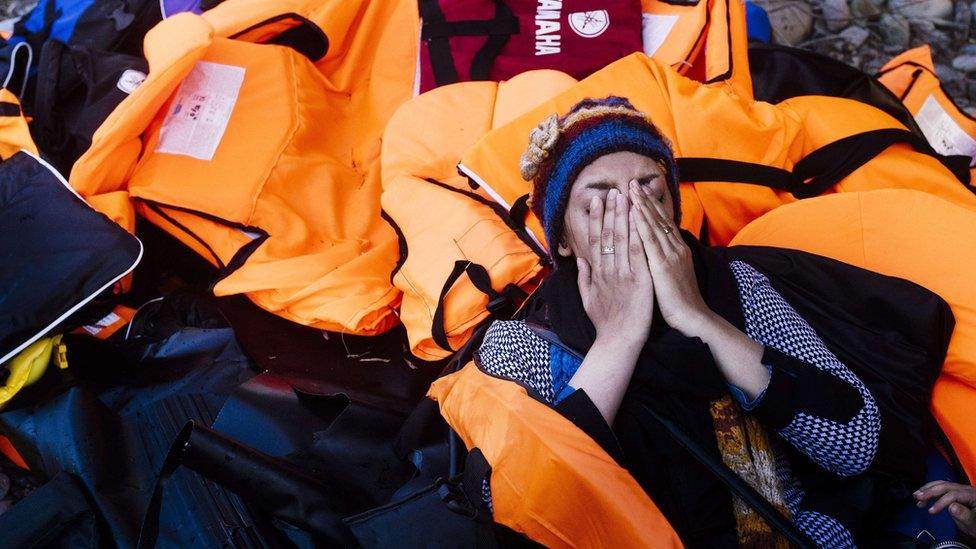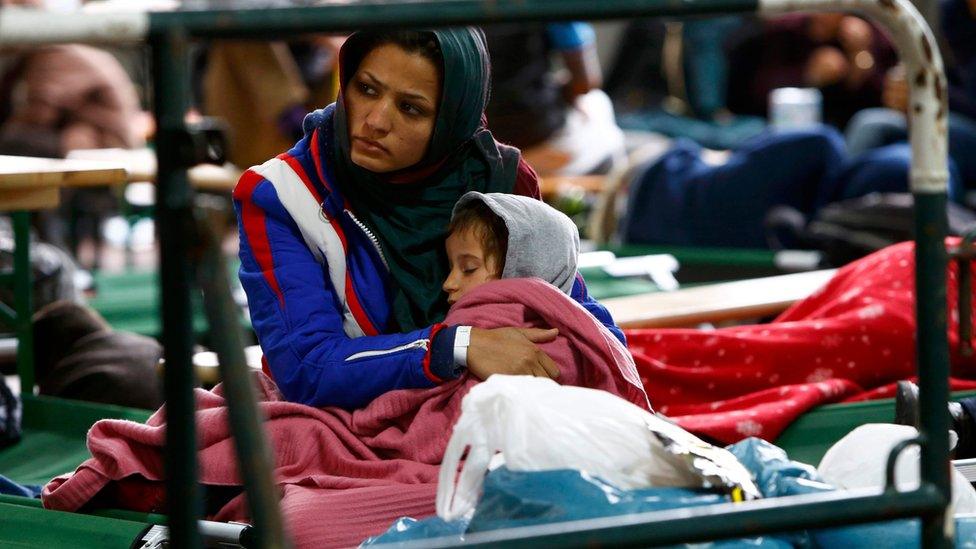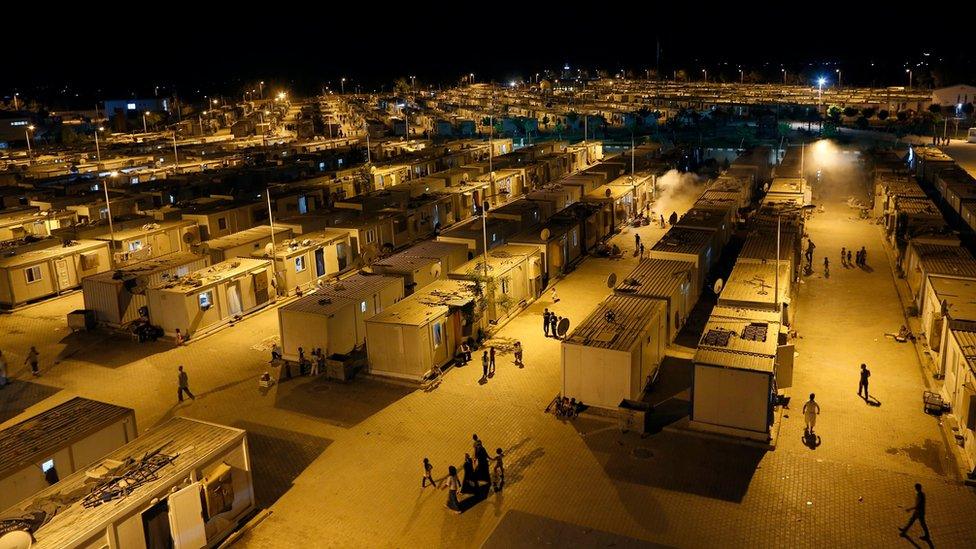Migrant crisis: Focus turns to Turkey in EU talks
- Published

The escalation of the war in Syria and the approach of winter have given added urgency to an EU summit on migration - the fourth one this year to focus on the crisis.
The Brussels talks on Thursday will look especially at the problems faced by Turkey, hosting more than two million Syrian refugees.
The EU is anxious to stem the record influx of refugees from Turkey, as 350,000 reached Greek islands between January and September this year.
The migrant crisis has severely strained the goodwill between EU states.
The inconsistency in asylum policy across the EU has led to bitter arguments.
Hungary, Slovakia and some other countries are reluctant to take in non-European refugees, arguing that they have much less experience of integration than countries like Sweden and Germany.
But German Chancellor Angela Merkel also faces growing opposition at home to her welcome for refugees, as the number of asylum seekers in Germany this year is forecast to reach at least 800,000.
Opinion polls suggest her popularity has suffered. But across Europe there is also sympathy for refugees fleeing war and persecution, and some anxiety that EU solidarity - fundamental to the bloc's consensus politics - is now crumbling.

EU leaders are keen to ensure those it calls economic migrants are sent home
The first few refugees have been relocated from Italy and more flights will follow soon from there and Greece, but progress is slow. Even if the target of 160,000 is met, it will take at least two years to transfer them.
So a key short-term priority is to improve the filtering of migrants when they arrive, so that only those in genuine need of international protection get asylum.
So-called "hotspots" are being set up in Italy and Greece, where EU teams are trying to speed up the registration process and ease the pressure at overcrowded reception centres.
A draft of the summit conclusions, seen by the BBC, calls for strengthening of the EU's external borders and a more determined "return" policy - that is, ensuring that economic migrants are sent home.
The EU border force Frontex is to get more staff and a wider mandate, so that it can help national authorities to deport migrants.
Currently fewer than 40% of those refused asylum are sent back.
The leaders will also discuss setting up a European coastguard service.

Money is being promised to improve conditions in refugee camps in Turkey
The European Commission is ploughing in extra funding - the total EU budget for the migration crisis is nearly €10bn (£7.4bn; $11.5bn) for 2015-2016.
But the 28 member states' governments are lagging behind, the Commission complains.
They are far from fulfilling their aid pledges - including aid earmarked for the UN and other humanitarian organisations.
"Even if the influx of refugees slows down during winter, we must be ready for spring and the threat of bigger waves flowing to Europe," said summit chairman Donald Tusk in a letter to fellow EU leaders, external.
There are expectations that Russia's air strikes in Syria in support of a government offensive, as well as further gains by so-called Islamic State (IS), will displace more Syrians - on top of the 11 million already uprooted.
How to help Turkey
The EU is offering more aid and resources to Turkey to improve conditions in the refugee camps.
That is a priority before winter, as severe hardship there - and in other countries on Syria's borders - could push more refugees to make the hazardous journey to Europe.
An EU-Turkey joint action plan, external is being finalised, to ease the refugees' plight, crack down on people-smuggling gangs and help Turkey repatriate migrants to countries deemed to be safe.
The migrant crisis will dominate this summit, so little time will be spent on the UK government's push for EU reform and the rule changes that Prime Minister David Cameron wants.
Mr Tusk says the leaders will "take stock of the next steps with regard to the UK referendum on its membership of the EU, and confirm our commitment towards seeking viable solutions".
A December EU summit is expected to be the forum for more detailed debate of the UK's renegotiation.